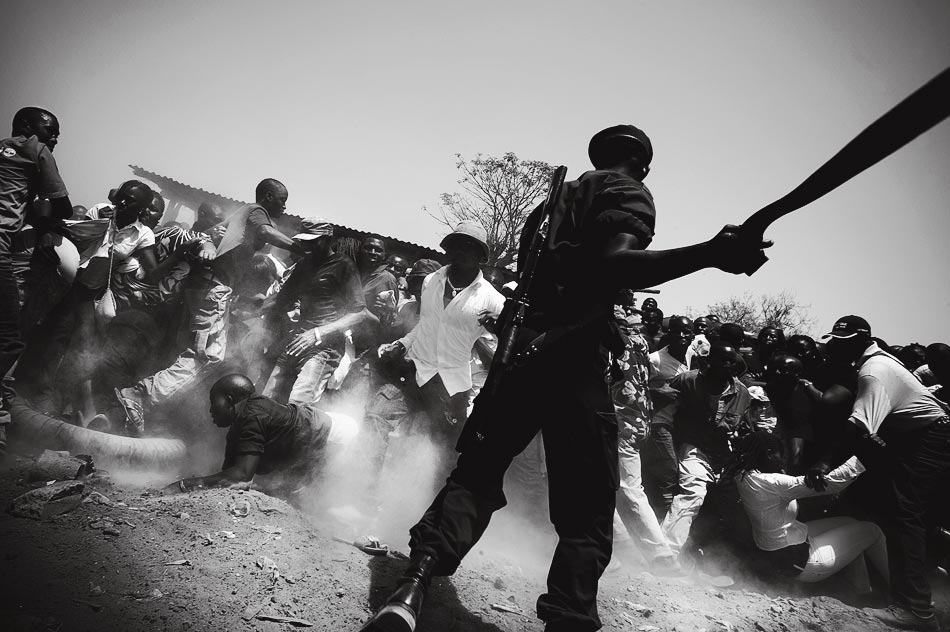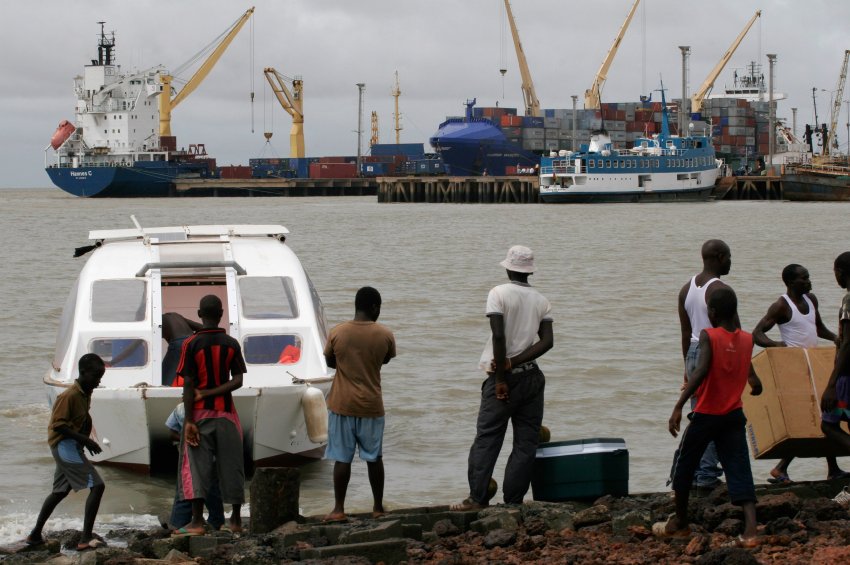NEW YORK, New York, USA – In a recent New York Times article – ‘US Drug War Expands to Africa, a Newer Hub for Cartels’ – a high-level US drug official states: ‘We see Africa as the new frontier in terms of counterterrorism and counternarcotics issues. It’s a place that we need to get ahead of – we’re already behind the curve in some ways, and we need to catch up.’
This is just one of many recent government and UN statements, as well as news reports across Africa and in the west, telling us that the continent is transforming into the newest centre in the international cocaine and heroin trade and that the international community and African governments need to act swiftly to contain the threat.
Having observed West Africa’s role in the drug trade for more than 10 years, it is puzzling that Africa is still described as ‘the new frontier’, particularly by the experts who are supposed to know the situation best. An intention to galvanise public interest in drugs in Africa and a short institutional memory might explain some of these a-historical statements. I would also argue that the neglect of Africa’s long history in the drug trade has led to some misunderstanding of its present and future role.
A long history.
West Africa has been at the centre of global drug trades for centuries. Mind-altering substances, such as kola – a light stimulant still lending its name to a popular American beverage – was traded extensively within the sub-region and across the Sahara from the 13th century onwards; whilst rum, brandy and gin were key commodities consumed and traded along Atlantic routes since the 17th century. You might say, ‘Yes, but kolanuts and alcohol are not the same as illegal heroin and cocaine’.
Of course, all these mind-altering substances are different and have different uses; however, 150 years ago, opium, coca, kola and alcohol were all considered legal and important trading commodities.
Even substances that are deemed dangerous today, such as heroin, cocaine and cannabis, have existed in West Africa for at least 100 years. In the late 19th century, the colonial administration in present day Nigeria experimented with coca in the botanical gardens of Lagos and Calabar, although these experiments never reached the export stage, as they did with opium produced along the Zambezi River at the time.
It took until the second half of the 1970s for heroin and cocaine to re-appear as significant smuggled commodities, commonly imported from major producing countries in Latin America and Asia, repacked in trading hubs such as Lagos and then transported in smaller quantities to major centres of demand in Europe and the US.
Cannabis has had a slightly different history, as it was traded along the West African coast since the 1930s. The trade in this substance steadily increased after the Second World War and became the focus of one of the first drug debates and policies in independent Nigeria.
Some aspects of the West African transit trade in heroin and cocaine have changed markedly in the last ten years and might be seen as the triggers for the current interest in the West African drug connection. Above all, law enforcers in West Africa and abroad are now not only arresting small-scale smugglers of a few kilograms, but also tons of cocaine shipped in containers, such as the 14.2 tonnes seized at a Lagos port in 2006.
Arguably, container shipments of drugs at West African ports were already common in the early 1990s; however, the frequency of these seizures has increased of late. In 2007, US drug officials estimated that 70 percent of cocaine consumed in Europe is shipped through West Africa, while the UN has been a bit more cautious in its estimates, claiming that 25 percent of Europe’s cocaine transits through the sub-region.

What we don’t know.
Why go on this excursion into the history of West Africa’s drug trades? Above all, it shows what we know about Africa’s role in the trade but more importantly also what we don’t know. The great diversity of claims about West Africa’s role in the cocaine trade should tell us that the evidence at the basis of such claims is very thin.
Most of the estimates are based on nationally reported seizure figures – the kilograms of drugs confiscated by drug agencies. Seizures don’t just indicate the actual availability of drugs but also the efforts made by law enforcers to apprehend those participating in the trade, hence they are a very bad measurement of drug market trends. Some of these figures can also be based on on-the-spot guesses by law enforcers.
Only recently, the UN has revised some of its claims about West Africa’s role in the drug trade and its latest World Drug Report (WDR) claimed that ‘the West African route … has since [2007] become less important’. All seizures reported across Africa still make up less than 1 percent of global seizures today, which might indicate that drugs and drug control efforts do not have such a strong foothold in Africa as elsewhere in the world.
Does that mean there should be less concern about drugs in West Africa? In fact, we should be more concerned, as it seems clear that a lot of official statements about Africa’s growing role are based on little or no reliable data. Even the UN acknowledges that ‘data on the prevalence of illicit drug use and trends remain vague at best’.
While talking to a foreign drug official in Nigeria two years ago, he explained to me how absurd it sometimes appears to base policy on Nigerian drug use on outdated research conducted in the late 1990s. There have been no government and UN studies on this topic since then.
A look ahead.
Due to the lack of reliable data on drugs in West Africa, it appears sensible not to make any decisive predictions on what the role of West Africa in global drug markets will look in the future. More legitimate is to question some of the official and media statements made about West Africa’s role, based on our knowledge of the history.
First, despite some worrying new trends, such as large-scale shipments of cocaine, West Africa’s role in the drug trade throughout the last 40 years has remained that of a transit point, where the majority of drug entrepreneurs smuggle drugs on the sidelines of other businesses. While UN officials have at times confidently claimed that ‘we’re going to see production [of drugs]’, this appears unlikely.
More and worrying is the anecdotal reporting of an increase in the use of heroin and cocaine in cities such as Lagos, although there is no research conducted to confirm this.
Second, while there have been claims that West Africa’s role in the drug trade is destined to increase – in large part because of political instability and the corrosive nature of borders in the region making the life of smugglers easy – this is not necessarily a logical conclusion. Instability and corrosive borders are not always of advantage to drug smugglers.
The drug entrepreneurs I have encountered would much rather ship their drugs through stable and well-connected Lagos than an unstable Bissau-Guinean port.
It should also be pointed out that West Africa’s geographical position in the global heroin and cocaine trades – especially its relative distance from the major producer and consumer centers – would mean a disadvantage compared to Latin American countries, the Caribbean and the Balkans that have had an even longer and much more important history in these trades.
As said before, these points are not intended to serve as a problem deflation, but to counter some of the relatively one-sided claims about West Africa’s strategic mis-advantages in the global drug trade.
Finally, what the history of the global drug trade and its control should also tell us is that many of the policies designed to halt this trade have often been more harmful to people than the drugs themselves. This is evident in the history of the US drug war and especially its manifestations in supplier countries, such as Colombia.
There is a high probability that many of these foreign-designed policies will have similarly negative effects in West African countries, although they will hopefully not be as far-reaching as in the Andes.
In Nigeria, since the 1980s international drug experts have openly supported the efforts of the state’s most repressive agencies to wage drug wars. These anti-drug campaigns, waged most fiercely under the regimes of Buhari and Abacha and to some degree continued until today, have left many Nigerians harassed, arrested and incarcerated (the majority for possession and use of small amounts of cannabis), and many others wondering whether the purpose of drug policy is simply to criminalise those the state claims to protect.
While Nigeria’s drug war experience is still exceptional in the sub-region, and not yet as intrusive and militarised as in places such as Colombia, the recent claims about West Africa’s growing role in the drug trade, have led to a stronger foreign drug control presence in West African capitals and helped to further these drug policy escalations across the region.










